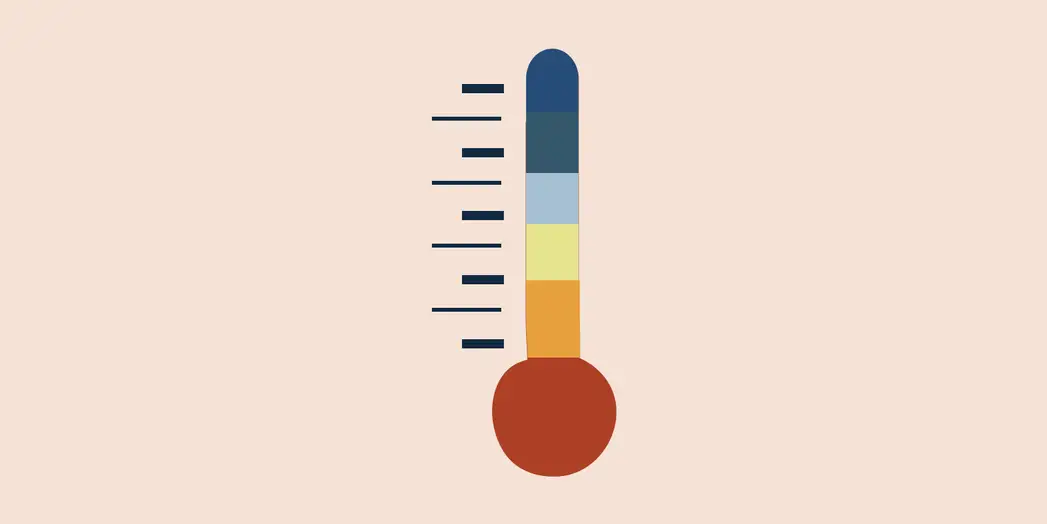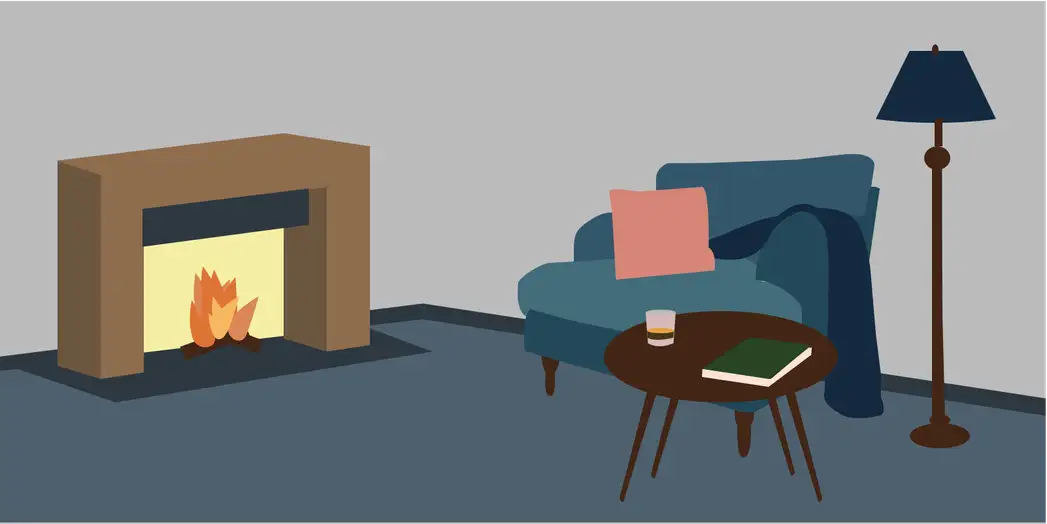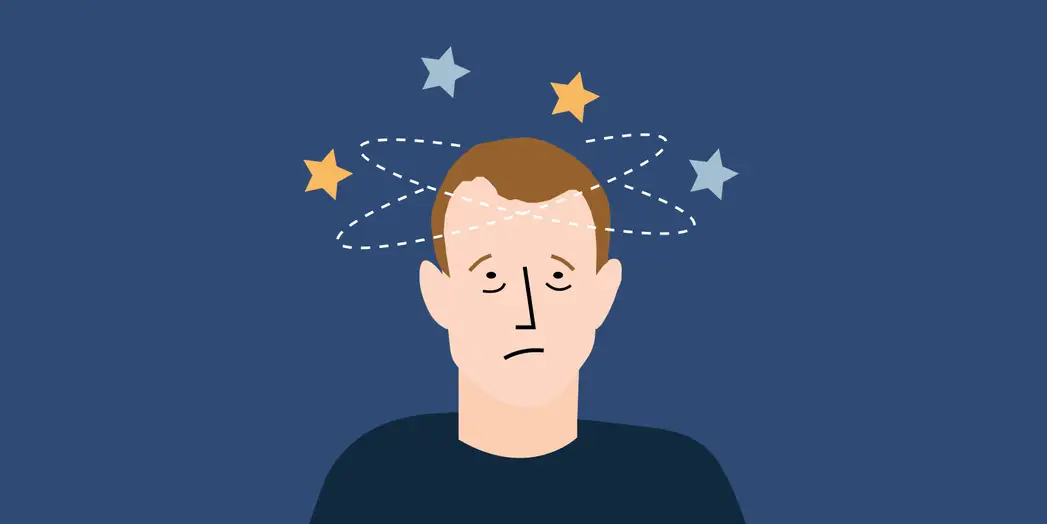Alcohol and sleep: help or hindrance
The worst of all ‘sleeping medicines’ is alcohol in any shape.
Contemporary Review: Volume 34, Jan 1879
Alcohol is the most widely used sleep aid on the planet. It’s probably been ‘helping’ us to sleep since we discovered how to make it at least 9,000 years ago.
And it does work…to a degree.
Alcohol will undoubtedly help to send you off to sleep as it actually works on the same receptors in the brain that are targeted by some sleeping tablets.
However, the problem with alcohol comes later in the night when alcohol has a number of negative effects.
Effects of alcohol on sleep
If you’ve ever had a few drinks before bed then you’ve probably:
- suffered a headache caused by dehydration
- visited the bathroom at least once in the night because alcohol is a diuretic (in other words, you need to pee more)
- experienced disturbed and restless sleep because you’re feeling hot and sweaty.
The first two effects might seem obvious but have you ever considered that alcohol could affect your body temperature?
Because alcohol is highly calorific, drinking too much means that your body is suddenly faced with having to burn off these additional calories.
And burning off more calories increases your body temperature!

In order to get a good sleep, you need to lose approximately 1°C of body temperature>) throughout the night.
But the alcohol in your system is a barrier to losing heat. It leads to poorer sleep, particularly in the second half of the night.1
Too many pints — or that extra glass of wine — can be the trigger for waking up bathed in sweat with your pillow soaking wet.
Combine alcohol with a fatty kebab or a late-night curry and your body has its work cut out keeping you cool and keeping you asleep.
Does alcohol always affect sleep?
Everyone is different. We all know someone who feels merry following their first drink and we know others who appear unfazed by pint after pint.
Just as alcohol affects all of us in different ways — and at different stages — there’s no set rule for how it will affect your sleep.
That said, if you’re drinking half a bottle of Scotch before bed then it will, of course, disturb your sleep. It could also be indicative of a wider problem.
By contrast, a small sherry or a nip of whisky before bed has never done anyone any harm and it can often be the perfect end to a lovely evening.
Large doses of alcohol produce stupefied and comatose sleep as a primary symptom and sleeplessness as a secondary symptom. But alcoholic sleep is at first snoring as if apoplectic; later, not to be roused. In alcoholic insomnia the patient tosses from side to side during nearly the whole night, getting only broken snatches of sleep attended with frightful dreams.
The Hahnemannian Advocate: A Monthly Magazine of Homoeopathic Medicine and Allied Sciences, Volume 38. HW Pierson, Jan 1899
Should you avoid a nightcap?
Not necessarily. Like all things alcohol-related, it’s about moderation and knowing your limits. Too much alcohol can affect your sleep but you may benefit from a small drink before bed.
For some of us, the relaxation gained from sipping a fine single malt in front of a roaring fire can outweigh the possible effects of the alcohol later that night, given that relaxation before sleep will improve your sleep.
It’s also worth remembering that alcohol isn’t solely responsible for disrupted sleep.
If you’ve enjoyed a lovely three-course dinner with friends — washed down with a few glasses of wine — then it’s the combination of a substantial meal and the alcohol that’ll affect your sleep.

So can you use alcohol to help you sleep?
Occasionally consuming a small amount of alcohol in the evening to help you relax and wind down isn’t a problem.
The problem arises if you find yourself relying on alcohol to get you to sleep. It can become a sleep crutch.
If you’re regularly drinking alcohol to help you fall asleep, particularly if you have insomnia, it’ll probably make your sleep problem worse.
Using alcohol as a sleep aid may result in you believing the only way you can get to sleep is by drinking. This idea becomes a self-fulfilling prophecy.
Using alcohol to help you relax and sleep may actually be masking a sleep disorder that needs treatment.
How does alcohol affect sleep?
Alcohol affects several stages of your sleep. 2
- Sleep onset latency — The time to fall asleep is reduced as soon as you consume any amount of alcohol. This appears to be the most robust effect of alcohol on nocturnal sleep.
- Wake after sleep onset — Waking during sleep is reduced in the first half of sleep but increased for total sleep time.
- Slow-wave sleep (N3, SWS) — Alcohol increases SWS in the first part of sleep. The effect of alcohol on total night SWS is dose-dependent: low doses show no clear trend; moderate doses show a trend toward an increase in SWS; and high doses show a significant and clear trend towards increasing total SWS.
- REM sleep — Following low or moderate doses of alcohol, there is no significant effect on REM sleep percentage in the first half of sleep. Significant effects on REM sleep reduction are only seen with high doses of alcohol.
In addition to affecting the stages of your sleep, alcohol can affect sleep in more peripheral ways, e.g. through:
Snoring Because alcohol is a muscle relaxant it may precipitate or increase the likelihood of snoring and may worsen obstructive sleep apnoea.3 Many non-snorers will snore after they have had some alcohol during the evening.
Parasomnias Alcohol increases the amount of SWS in the first third of the night. As a result it may precipitate — or increase the frequency of — parasomnias which occur during this stage of sleep. Sleepwalking and sleep talking are two examples.
Medication Alcohol may interact with other medications that you may be taking to help you sleep. This can actually prolong the action of the medications and potentially lead to a ‘hangover’ the next morning.4
Other, generalised sedative effects Alcohol can increase the sedative effects of medications that you may be taking for other conditions. This is why you’ll often see a warning label on these medications advising you to avoid alcohol.
Alcohol-disrupted sleep and risk-taking behaviour
One consequence of poor sleep — linked to drinking alcohol — is a tendency to take risks. Insufficient sleep, particularly in younger adults, is associated with an increased tendency towards ‘risky behaviours’ including:
- smoking cigarettes or marijuana and drinking alcohol
- seriously considering attempting suicide
- focusing on a sense of sadness or hopelessness
- physically fighting
- failing to be physically active for at least 60 minutes a day for more than five days in the past seven days
- using the computer up to three hours a day
- reliance on a poor diet through the consumption of fizzy drinks.5
Risky behaviours can evolve into bad habits and potentially develop into addictions.6
Alcohol, sleep and addiction
The transition from risky behaviours to bad habits and ultimately addiction is worryingly common. One contributory factor could be the effect of poor sleep on neurocognitive functioning.
Poor sleep may lead to:
- impairments in higher-order cognitive functioning including working memory and problem-solving 7
- reduced inhibition and an inability to regulate emotions.8 9
These impairments could mean the danger signs related to substance use — and excess alcohol consumption — are missed.
These higher cognitive functions originate in the prefrontal cortex and this is particularly sensitive to the effects of sleep deprivation.10
So it’s easy to understand why young people can become locked into a repetitive cycle of sleep deprivation, alcohol dependence, risky behaviour and addiction.

Can alcohol cause insomnia in young adults?
Let’s crunch some numbers and assess the evidence.
- Thirty percent of young adults report binge drinking (>5 drinks on one occasion) 11 and alcohol-related problems.12
- Insomnia disorder is reported to affect 6-15% of the general population 13 but insomnia rates as high as 58% have been reported among those who abuse alcohol (alcohol use disorder (AUD)).14Individuals with AUD — and who experience poor sleep — report particularly high rates of using alcohol as a sleep aid (55%).15
It’s clear that using alcohol as a sleep aid leads to poorer sleep and disrupted sleep can lead to an even greater dependence on alcohol. No wonder addiction feeds off this debilitating cycle and insomnia in young adults prevails.
Alcohol and sleep: breaking the cycle
Improving sleep has been shown in several studies to have a positive impact on adolescent health and well-being. Benefits include:
- improved physical health 16
- fewer car accidents 17
- improved cognitive functions 18
- improved emotional health.19
As sleep disturbance is a predictor of future alcohol use and related problems 20 21 22 23 24 25 it would seem logical that improving sleep may help reduce the incidence of AUD.26
What can I do if I’m dependent on alcohol and can’t sleep?
A recent study tested the feasibility and short-term efficacy of CBTi among binge-drinking young adults with insomnia.27
CBTi was, as expected, found to improve sleep. Interestingly, it was also associated with reductions in alcohol-related problems among young adults at risk from alcohol-related harm.
This suggests not only that CBTi is effective in reducing insomnia symptoms but that improvements in insomnia may also result in fewer alcohol-related problems.
Breaking that debilitating cycle is possible.
The potential for insomnia treatment to influence alcohol-related consequences has significant implications for the prevention and treatment of problematic alcohol use among young adults.
CBTi reduces symptoms of insomnia among young adults who are actively drinking — even in the absence of direct alcohol intervention.
This is important as individuals tend to report a preference for insomnia treatment compared to other treatments related to mental health issues.28
CBTi as a solution to alcohol-induced insomnia
CBTi, as offered by Sleepstation, could help if you’re experiencing alcohol-induced insomnia.
CBTi is recommended as the best starting point for treating insomnia that has lasted more than four weeks (chronic insomnia). Unlike sleeping pills, CBTi helps you overcome the underlying causes of your sleep problems rather than just alleviating the symptoms. To find out more click here.
Summary
- Alcohol is used as a sleep aid… but it rarely aids sleep.
- Too much alcohol before bed often means a sleepless night.
- A small nightcap can be of some benefit.
- Alcohol and a lack of sleep are a dangerous combination and can lead to a debilitating cycle.
- Alcohol and a lack of sleep in young adults can lead to ‘risky behaviours’.
- CBTi can help if you’re experiencing alcohol-induced insomnia.
References
- Aldrich M. Effects of alcohol on sleep. Alcohol Problems and Aging: National Institute on Alcohol Abuse and Alcoholism Research Monograph. 1998;33:281–300. ↩︎
- Ebrahim IO, Shapiro CM, Williams AJ, Fenwick PB. Alcohol and sleep I: effects on normal sleep. Alcohol Clin Exp Res. 2013;37(4):539–49. ↩︎
- Roehrs T, Roth T. Sleep, sleepiness, and alcohol use. Alcohol Res Health. 2001;25(2):101–9. ↩︎
- Thakkar MM, Sharma R, Sahota P. Alcohol disrupts sleep homeostasis. Alcohol. 2015;1;49(4):299-310.
↩︎ - Feige B, Gann H, Brueck R, Hornyak M, Litsch S, Hohagen F, et al. Effects of alcohol on polysomnographically recorded sleep in healthy subjects. Alcohol Clin Exp Res. 2006;30(9):1527–37. ↩︎
- Carole W, Sherry L, Taasan VC, Block AJ, Boysen PG, Wynne JW. Alcohol increases sleep apnea and oxygen desaturation in asymptomatic men. The American journal of medicine. 1981;1;71(2):240-5.
↩︎ - Kuitunen T, Mattila MJ, Seppala T. Actions and interactions of hypnotics on human performance: single doses of zopiclone, triazolam and alcohol. Int Clin Psychopharmacol. 1990;5 Suppl 2:115–30. ↩︎
- McKnight-Eily LR, Eaton DK, Lowry R, Croft JB, Presley-Cantrell L, Perry GS. Relationships between hours of sleep and health-risk behaviors in US adolescent students. Prev Med. 2011;53(4–5):271–3. ↩︎
- Dayan J, Bernard A, Olliac B, Mailhes A-S, Kermarrec S. Adolescent brain development, risk-taking and vulnerability to addiction. J Physiol Paris. 2010;104(5):279–86. ↩︎
- Thomas AG, Monahan KC, Lukowski AF, Cauffman E. Sleep problems across development: a pathway to adolescent risk taking through working memory. J Youth Adolesc. 2015;44(2):447–64. ↩︎
- Mauss IB, Troy AS, LeBourgeois MK. Poorer sleep quality is associated with lower emotion-regulation ability in a laboratory paradigm. Cogn Emot. 2013;27(3):567–76. ↩︎
- Baum KT, Desai A, Field J, Miller LE, Rausch J, Beebe DW. Sleep restriction worsens mood and emotion regulation in adolescents. J Child Psychol Psychiatry. 2014;55(2):180–90. ↩︎
- Horne J. Neuroscience. Images of lost sleep: Neuroscience. Nature. 2000; 403(6770):605–6. ↩︎
- Patrick ME, Terry-mcElrath YM, Miech RA, Schulenberg JE, O’Malley PM, Johnston LD. Age-specific prevalence of binge and high-intensity drinking among U. S. young adults: Changes from 2005 to 2015. Alcoholism: Clinical and Experimental Research. 2017;41:1319–1328. ↩︎
- Hingson R, Zha W, Simons-Morton B, White A. Alcohol-induced blackouts as predictors of other drinking related harms among emerging young adults. Alcohol Clin Exp Res. 2016;40(4):776–84. ↩︎
- Ohayon MM. Epidemiological Overview of sleep Disorders in the General Population. Sleep Med Res. 2011;2(1):1–9. ↩︎
- Brower KJ. Assessment and treatment of insomnia in adult patients with alcohol use disorders. Alcohol. 2015;49(4):417–27. ↩︎
- Brower KJ, Aldrich MS, Robinson EA, Zucker RA, Greden JF. Insomnia, self-medication, and relapse to alcoholism. Am J Psychiatry. 2001;158(3):399–404. ↩︎
- Lowry R, Eaton DK, Foti K, McKnight-Eily L, Perry G. Galuska DA Association of Sleep Duration with Obesity among U. S High School Students.
↩︎ - Pizza F, Contardi S, Antognini AB, Zagoraiou M, Borrotti M, Mostacci B, et al. Sleep quality and motor vehicle crashes in adolescents. J Clin Sleep Med. 2010;6(1):41–5. ↩︎
- Gruber R, Wiebe ST, Wells SA, Cassoff J, Monson E. Sleep and academic success: mechanisms, empirical evidence, and interventional strategies. Adolesc Med State Art Rev. 2010;21(3):522–41, x. ↩︎
- Dahl RE The consequences of insufficient sleep for adolescents – Phi Delta Kappan. 1999 ↩︎
- Wong MM, Brower KJ, Zucker RA. Childhood sleep problems, early onset of substance use, and behavioral problems in adolescence. Sleep Medicine. 2009;10(787):796 10. ↩︎
- Wong MM, Robertson GC, Dyson RB. Prospective relationship between poor sleep and substance-related problems in a national sample of adolescents. Alcohol Clin Exp Res. 2015;39(2):355–62. ↩︎
- Pieters S, Burk WJ, Van der Vorst H, Dahl RE, Wiers RW, Engels RCME. Prospective relationships between sleep problems and substance use, internalizing and externalizing problems. J Youth Adolesc. 2015;44(2):379–88.
↩︎ - Hasler BP, Kirisci L, Clark DB. Restless sleep and variable sleep timing during late childhood accelerate the onset of alcohol and other drug involvement. J Stud Alcohol Drugs. 2016;77(4):649–55.
↩︎ - Miller MB, Janssen T, Jackson KM. The prospective association between sleep and initiation of substance use in young adolescents. J Adolesc Health. 2017;60(2):154–60.
↩︎ - Miller MB, DiBello AM, Lust SA, Carey MP, Carey KB. Adequate sleep moderates the prospective association between alcohol use and consequences. Addict Behav. 2016;63:23–8. ↩︎